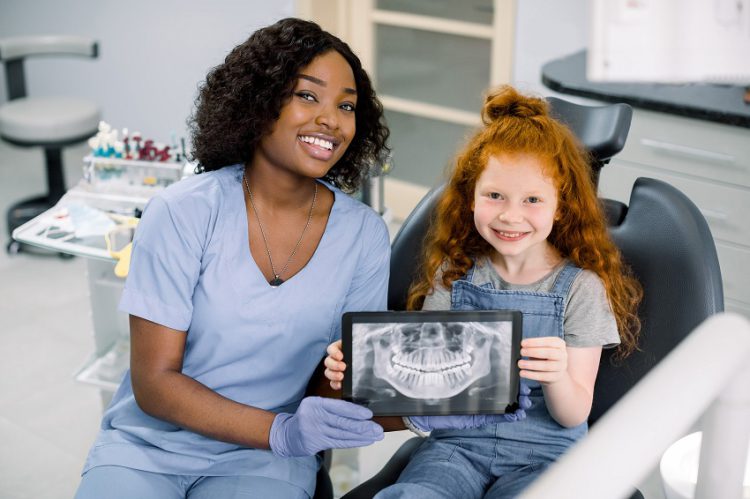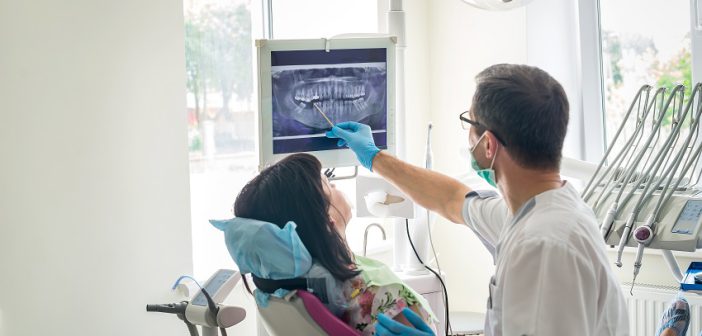Oral health is part of your overall health, and one of the most important factors in oral hygiene is getting frequent cleanings. But how often should you really have those appointments? Read on to get the answers you’re looking for.
The Basics of Dental Cleanings
Professional dental cleanings, also known as prophylaxis, is a procedure performed by dental hygienists to remove plaque, tartar, and stains from your teeth. These cleanings go beyond what you can achieve with your daily brushing and flossing routine.
During a typical cleaning appointment, your dental professional will:
- Remove plaque and tartar buildup
- Polish your teeth to remove surface stains
- Floss between your teeth
- Apply fluoride treatment if necessary
There might be additional steps taken depending on the examination done by the dentist on your teeth.

The Importance of Regular Dental Visits
Why are regular dental cleanings important? They’re vital for several reasons, such as:
- Prevention of tooth decay and gum disease
- Early detection of dental issues
- Maintenance of good oral hygiene
- Fresher breath and a brighter smile
Of course, clean teeth also translate to increased confidence, which impacts many aspects of life.
How Often Should You Get a Dental Cleaning?
So, how often should one get a dental cleaning? The American Dental Association recommends regular dental visits, with the frequency determined by your dentist based on your individual needs. However, a common guideline is to have professional teeth cleanings every six months.
Some people may need more frequent cleanings, while others might be fine with less frequent visits. Factors that influence the frequency of your dental cleaning appointments include:
- Your overall health
- Your oral hygiene habits
- Risk factors for dental problems
- History of gum disease or tooth decay

Let’s look at some scenarios to better understand how often different people might need dental cleanings:
Scenario 1
Sarah has excellent oral hygiene habits. She brushes twice daily, flosses regularly, and has no history of dental issues. For Sarah, a dental cleaning every six months is typically sufficient to maintain her good oral health.
Scenario 2
John has a family history of gum disease and is a smoker. He also has diabetes, which can affect oral health. In John’s case, his dentist might recommend more frequent cleanings, perhaps every three to four months, to keep his gums healthy and monitor for any signs of periodontal disease.
Scenario 3
A ten-year-old kid, Emily seems to get cavities no matter how well she brushes. Her dentist suggests more frequent cleanings, perhaps every four months, along with additional fluoride treatments to help prevent tooth decay.
Scenario 4
Harold is 72 and takes medications that cause dry mouth, increasing his risk of tooth decay. His dentist recommends cleanings every four months to keep a close eye on his oral health and prevent potential issues.
Benefits of Frequent Dental Cleanings
Of course, frequent dental cleanings bring many benefits, including:
Prevention of gum disease
Regular cleanings help remove plaque and tartar buildup, which can lead to gingivitis and, if left untreated, periodontal disease.
Early detection of dental issues
Your dental professional can also spot potential problems early, such as cavities, gum disease, or even oral cancer, during these regular check-ups.
Fresher breath
Professional cleanings can help eliminate bad breath by removing bacteria and food particles that your toothbrush might miss.
Brighter smile
Regular cleanings can help remove surface stains as well, keeping your teeth looking their best.
Cost savings
Of course, by preventing major dental issues, regular cleanings can save you money on expensive treatments down the line, too.
What happens during a professional dental cleaning?
To give you a clearer picture of what to expect, here’s a breakdown of a typical dental cleaning appointment:
Examination
Your dental hygienist will examine your mouth for any obvious issues.
Scaling
Next, using special tools, they’ll remove plaque and tartar from your teeth and along the gum line.
Polishing
A gritty toothpaste-like substance is also used to polish your teeth, removing surface stains.
Flossing
The hygienist will then floss between your teeth to remove any leftover plaque or polishing paste.
Fluoride treatment
If necessary, a fluoride treatment may be applied to help protect your teeth against decay.
Dental check
The dentist will then perform a thorough examination, checking for cavities, gum disease, and other potential issues.
Tips for Maintaining Good Oral Health Between Cleanings
While regular dental cleanings are crucial, your day-to-day oral hygiene routine plays a significant role in maintaining good oral health. Here are some tips to keep your teeth and gums healthy between professional cleanings:
- Brush twice daily with fluoride toothpaste
- Floss at least once a day
- Use an antiseptic mouthwash
- Eat a balanced diet and limit sugary snacks
- Avoid tobacco products
- Replace your toothbrush every three to four months
These best practices, when combined with regular dental cleanings, should give you that bright smile that inspires confidence!
What If You’re at Higher Risk for Dental Issues?
As previously mentioned, some people are at higher risk for dental problems and may need more frequent cleanings. Risk factors include:
- Smoking or using tobacco products
- Diabetes
- Pregnancy
- Certain medications
- History of gum disease
- Weak immune system
If you fall into any of these categories, discuss with your dentist about the appropriate frequency for your dental cleaning appointments.
The Role of Dental Insurance
Note that many dental insurance plans cover two professional cleanings per year. They can save you a significant amount of money from dental cleanings. However, if you need more frequent procedures due to higher risk factors, some plans may cover additional visits. Check with your insurance provider to understand your coverage.
When to Schedule a Dental Cleaning Sooner
While sticking to a regular cleaning schedule is important, there are times when you might need to see your dentist sooner. These instances include:
- You notice bleeding when brushing or flossing
- You have persistent bad breath
- Your gums are red, swollen, or tender
- You experience tooth sensitivity
- You have pain in your mouth or jaw
- It’s been over a year since your last dental visit
When experiencing any of these, schedule an appointment with a dentist as soon as possible.
Conclusion
While the frequency of dental cleanings might differ for each individual, most people are generally advised to have professional teeth cleaning at least every six months. A strong, consistent oral care routine will help you maintain good oral health and identify any severe dental problems that could arise, including tooth loss.
It’s also important to note that professional cleanings or deep cleanings coupled with good oral hygiene at home will guarantee you a smile for life.
And remember, your dentist is also a partner in oral health, so don’t be afraid to discuss any concerns or questions you may have about your planned dental cleaning program.




